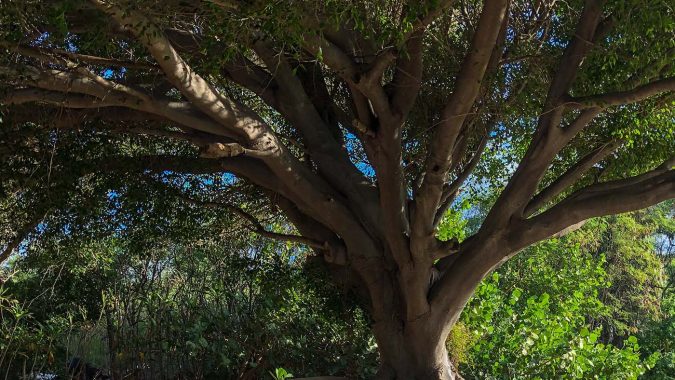
Teachings by Dharma Master Cheng Yen
Translated by Dharma as Water Development Department, Tzu Chi USA
There is a Chinese proverb, “The time to plan for the year is in the spring, and the time to plan for the day is in the morning.” As we begin our morning recitation practice in the new year, we all hope with utmost reverence that our prayers will reach all buddhas and bodhisattvas. This reverence should not be limited to when we practice. In fact, all of our thoughts must be reverent 365 days of the year. In every one of the 86,400 seconds of every day, we must be reverent in our thoughts. We should seek blessings for ourselves, and also pray for peace and favorable weather for the world. If the “greater self” of the world is at peace, then how could our “small selves” as individuals not be at peace?
We often speak of being “selfless” or doing things for “the greater self of the world,” yet in our lives, whenever we speak, we talk about “I” and “me.” As we work, we may say things like, “Help me to bring that thing over here!” or “Make way, I need to get through!” Our perspective still starts with “me.” We need to reverse our focus on “I” and “me,” and go among the people, inviting those who are reverent and selfless to work for the “greater self” of the world.
Reverence begins with adopting a vegetarian diet. As we face earth-shattering disasters, we must give rise to world-awakening realizations. On Da Ai TV, I saw how people said, “I, and all of us, will uphold a vegetarian diet!” There are also Tzu Chi volunteers in some countries who said, “I, and all of us, will all practice vegetarianism!” This is very inspiring! There are so many “I’s” from around the world, but no matter what country they are from or their background, they share this common mindset and bring this all-embracing great love to fruition. With this thought of great love and reverence, we pray for the world to be free of disasters.
Right now, the world is unsettled and people’s hearts are anxious. When people greet each other, they say, “Happy New Year,” but how can we ensure that the new year will be a good one? With our hearts united, we can pray for favorable living conditions. We pray that the four elements of earth, water, fire, and wind will be harmonious and follow the natural course of the four seasons. May the world be in harmony and at peace.
Our ancestors had great wisdom. They created calendar systems to clearly distinguish different times and solar terms. In one year, there are twenty-four solar terms, indicating when the season enters spring, summer, autumn, and winter. When is the right time to sow seeds? When should we plant the rice and plow the fields? There is a set rhythm to all of these things. This is the laws of nature, and all living things continue to exist in harmony accordingly.
For the weather conditions to be harmonious, people’s hearts must also be in harmony. The weather influences our living conditions, while human temper influences our hearts. When it comes to the weather, we pray for favorable conditions; when it comes to people, we must earnestly cultivate our minds and nurture our character. Bad temper is like a gust of energy; it arises from ignorance in people’s hearts, causing them to focus on themselves and only do as they please. Some people may say, “Whatever I have done is what matters!” or, “This is how I want to do it! What I say is all that counts!” This kind of mindset is not right. When working with people, we must collaborate with others and ask them for their input. If the majority of the people are in consensus, then things will be harmonious. Thus, we can move in the same direction, and things we do will surely go well.
Earth orbits around the sun and rotates on its axis without deviating for a second. This is just like our walking meditation in the morning recitations at the Abode; our steps are aligned, and with reverence in our hearts, we recite the Buddha’s name. When we recite the Buddha’s name, the Buddha is within our hearts. Your heart, my heart, and everyone’s hearts are united, and everyone’s thoughts are one, without the slightest deviation. With our voices and movements in harmony, we express the sincere wish to practice in our hearts. As we chant and move our bodies, our every step is firm and grounded, and the rhythm of our walking meditation is dignified. This is realizing the practice of the Five Spiritual Roots and Five Powers of faith, diligence, mindfulness, Samadhi, and wisdom. Every morning, we begin the day with the right mindset. We keep the Buddha in our every thought, and with every step, we walk on the Bodhisattva Path. The Dharma is present in every minute and second of our lives.
We strive to keep our hearts on track and our actions in unison, being mindful of our every thought and every action. In the Chinese word for “thought,” the character for “field” is above the character for “heart.” This refers to how within every one of us, there is a field of the heart to be cultivated. When we sow good seeds, as long as the four elements are in harmony and we provide regular irrigation and weeding, we will surely have an abundant harvest.
A field that lacks cultivation will be full of weeds. Within the earth, the seeds of many weeds are hiding in wait, so even if someone cultivates their fields and constantly removes weeds, the weeds still grow faster than the sprouts of the planted seeds. Thus, with a good heart, we must still actively cultivate good habits. Through our roots of faith, we can absorb benevolence and thoughts of kindness. On the path of our spiritual practice, when our cultivation moves in the direction of good habits, naturally, the thoughts that arise will be good ones.
Someone may say about another person, “This person’s temperament is good. He has a good disposition.” A person’s disposition comes from within, so if their disposition is good, that shows that the field in his heart is pure and good—if seeds are sown there, they will grow to be an abundant harvest. If someone has poor habitual tendencies, that means their disposition is poor, and weeds will easily grow. Afflictions and ignorance are like weeds. If only a small number of good seeds are sown, they will not be able to outcompete the weeds.
In our lives, good words are precious, so we must practice speaking good words. However, while it may be easy to speak good words, it is often difficult to listen to them. The person speaking may speak at length about the correct principles, but it can be difficult for the person listening to have patience. They listen and look at their watch at the same time, and their mind wanders off. Within this time, there are many discursive thoughts that arise, resulting in them passing the time in vain. When we listen mindfully and take the Dharma to heart, we are letting good teachings enter our hearts. In doing so, “one can give rise to infinity.” In practicing the Bodhisattva Way, we must practice the virtuous Dharma, connect with suffering sentient beings, and use love to shelter and protect all beings in suffering.
Compiled from Master Cheng Yen’s teachings at the Morning Volunteer Assemblies on February 12 and 23, 2021
































